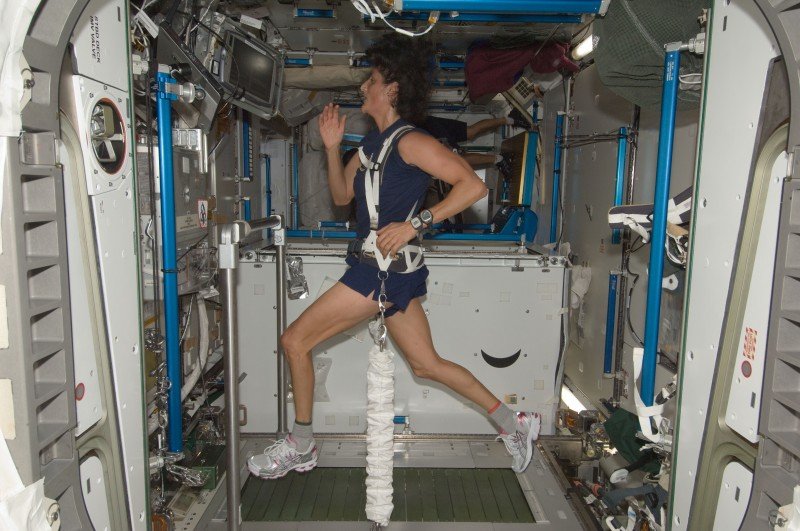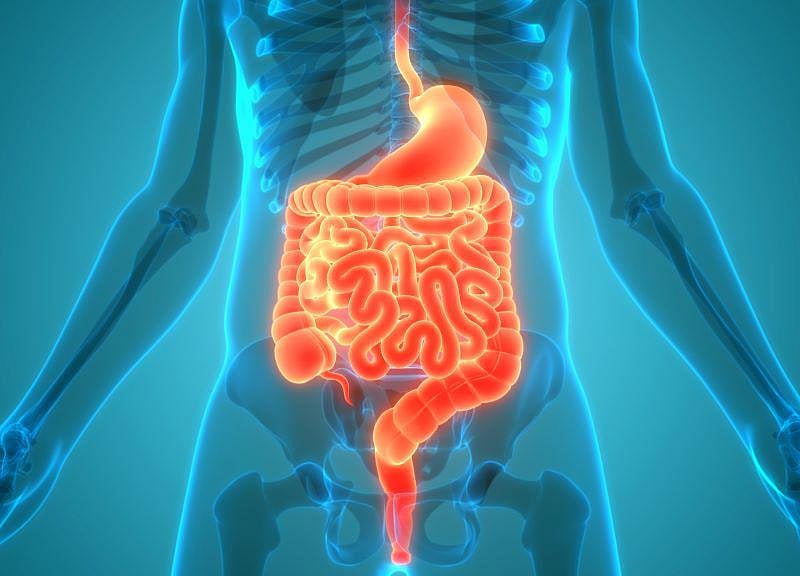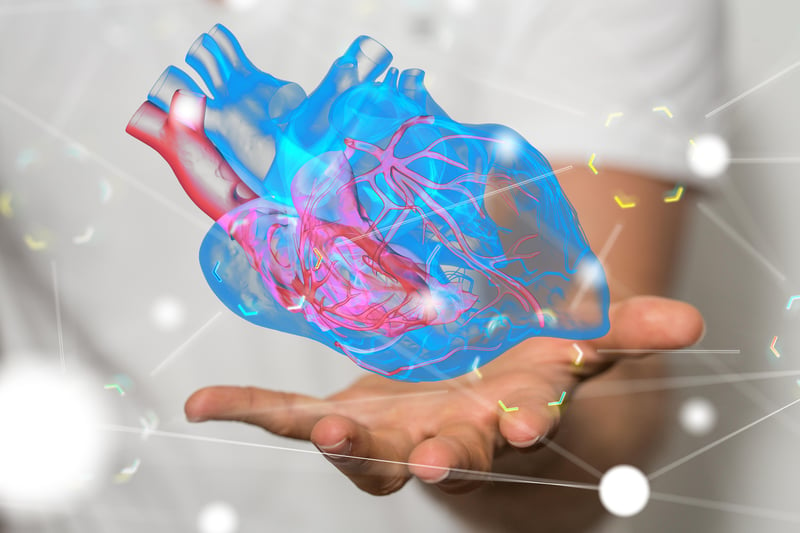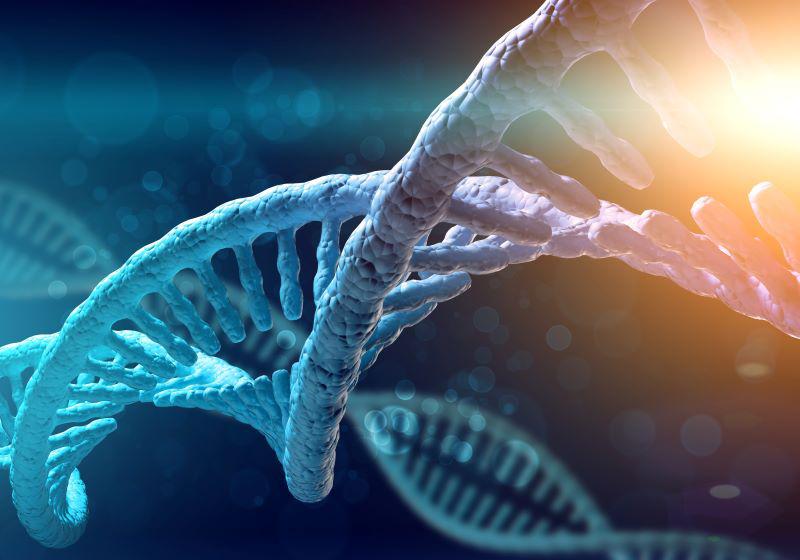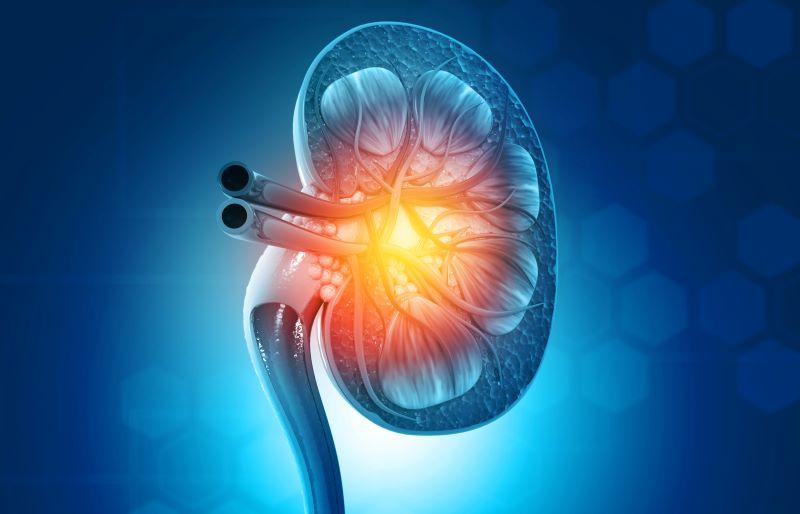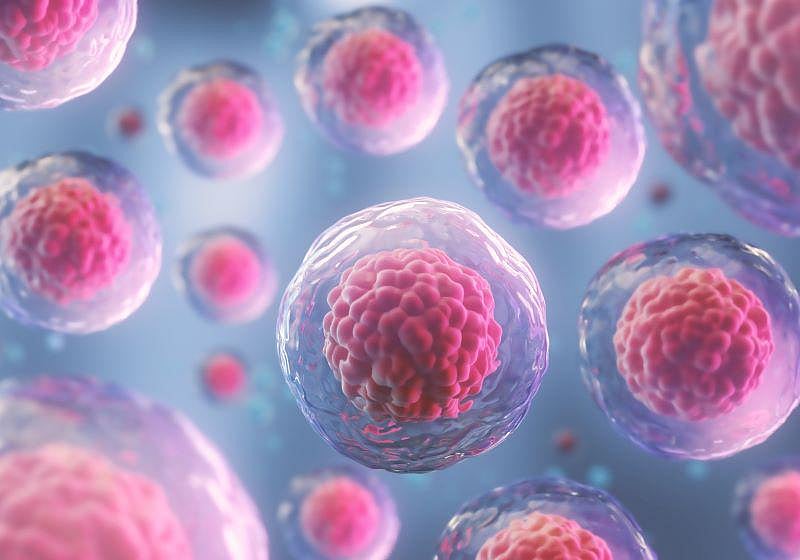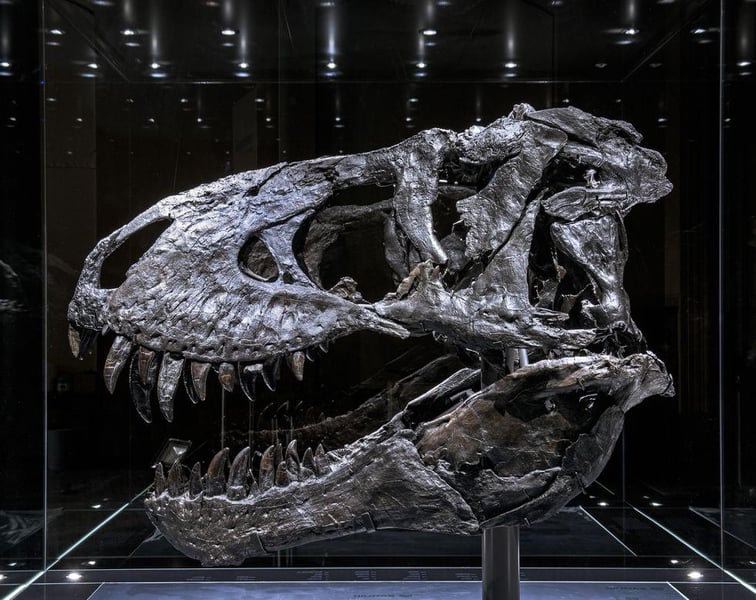Manténgase sano!
Resultados de su búsqueda "Anatomy / Biology".
Resultados de noticias de salud - 35
After a massive five-year effort, researchers have unveiled an "atlas"that gives an unprecedented look at the intricacies of the human brain.
The atlas, which will be available to researchers everywhere, can be seen as similar to the atlases we all know: a book of maps.
But this one catalogues human brain c...
- HealthDay Reporter
- Amy Norton
- |
- October 12, 2023
- |
- Página completa
Anyone with a cat knows the calm, low rumble of purring, but how does such a small animal make such a low sound?
New research suggests it boils down to a pad embedded in feline vocal cord folds.
That's different than previously thought, which was that purring happened through a special mechanism, with cyclical contraction and relaxation of the muscles in the vocal folds within the ...
- HealthDay Reporter
- Cara Murez
- |
- October 9, 2023
- |
- Página completa
New research suggests that concert goers may synchronize their breathing and more as they listen to the intricacies of a classical symphony performance.
Previous studies have shown that music may be able to induce synchronization in listeners, but the authors of this study said there has been little investigation into whether concert audiences actually become synchronized.
This new ...
- HealthDay Reporter
- Cara Murez
- |
- October 6, 2023
- |
- Página completa
Extensive exercise regimens are keeping astronauts healthy and protecting their hearts during extended space missions, new research finds.
A study from scientists at UT Southwestern Medical Center in Dallas found no loss of heart mass or output, and no loss of function in the heart's ventricles, during flights that can last up to six months.
The findings could have implications...
- HealthDay Reporter
- Cara Murez
- |
- October 2, 2023
- |
- Página completa
Growing up in poverty may harm the structural wiring of a child's brain, a new study claims.
Researchers from Washington University School of Medicine in St. Louis found a link between both neighborhood and household poverty and the brain's white matter tracts. These let the brain communicate between its regions and are important for processing information.
"White matter integrity i...
- HealthDay Reporter
- Cara Murez
- |
- June 28, 2023
- |
- Página completa
Space travel appears to weaken astronauts' immune systems, and researchers believe changes in gene expression are the culprit.
These immune deficits aren't permanent. They disappear when back on Earth, often within weeks, according to new research published June 22 in Frontiers in Immunology.
"Here we show that the expression of many genes relat...
- HealthDay Reporter
- Cara Murez
- |
- June 22, 2023
- |
- Página completa
Astronauts spending six months or longer in space should stretch their time between trips to three years, warns new research on the impact of space travel on the brain.
To study this, researchers examined the brain scans of 30 astronauts, looking at scans that depicted their brains both before and after their missions.
The research team included missions that were two weeks long, si...
- HealthDay Reporter
- Cara Murez
- |
- June 9, 2023
- |
- Página completa
The influence of Neanderthals is evident right in the center of the faces of modern humans.
New research finds that genetic material inherited from Neanderthals affects nose shape. A particular gene made the nose taller from top to bottom.
This may have been necessary as ancient humans adapted to colder climates.
"In the last 15 years since the Neanderthal genome has been seq...
- HealthDay Reporter
- Cara Murez
- |
- May 9, 2023
- |
- Página completa
A significant number of patients take far longer to recover from a concussion than expected, and they may not be getting the care they need, according to a new study.
Researchers from the United Kingdom who studied concussion patients found that almost half had changes in how regions of the brain communicate with each other. This may cause long-term symptoms, including fatigue, and impair...
- HealthDay Reporter
- Cara Murez
- |
- April 26, 2023
- |
- Página completa
People are often reminded that they are their own unique person -- and a new study says that's particularly true of the digestive tract.
Dissections of a few dozen deceased individuals revealed striking differences in gastrointestinal anatomy, even among a small group of people.
Some livers were larger, some intestines and colons were longer. Crucial discrepancies were observed betw...
- HealthDay Reporter
- Dennis Thompson
- |
- April 24, 2023
- |
- Página completa
Assessing heart roundness may be a new way to diagnose cardiovascular conditions, new research suggests.
While doctors now use measures like heart chamber size and systolic function to diagnose and monitor cardiomyopathy and other related heart issues, cardiac sphericity (how round the heart is) may be another good tool.
"Roundness of the heart isn't necessarily the problem per se -...
- HealthDay Reporter
- Cara Murez
- |
- March 30, 2023
- |
- Página completa
Groups of whales, dolphins and porpoises are regularly stranded in shallow waters around the coasts of the United Kingdom.
Researchers wanted to understand why, so they studied the brains of 22 toothed whales -- or "odontocetes" -- that were stranded in Scottish coastal waters.
The study included...
- HealthDay Reporter
- Cara Murez
- |
- December 21, 2022
- |
- Página completa
Humans have continued to evolve after splitting from chimpanzee ancestors nearly 7 million years ago, according to a new study that found 155 new genes unique to humans that suddenly arose from tiny sections of DNA.
Some of the new genes date back to the ancient origin of mammals, according to the researchers. They suspect a few of these "microgenes"have links to human-sp...
- HealthDay Reporter
- Cara Murez
- |
- December 21, 2022
- |
- Página completa
Women tend to be better able than men to recover from kidney injury, but why?
Apparently women have an advantage at the molecular level that protects them from a form of cell death that occurs in injured kidneys, a new study in mice has discovered.
"Kidney disease afflicts more than 850 million people worldwide every year, so it's important to understand why female kidneys are more ...
- HealthDay Reporter
- Cara Murez
- |
- November 9, 2022
- |
- Página completa
The risk of suffering a stroke at an early age may depend partly on a person's blood type, a large study suggests.
When it comes to the risk of ischemic stroke -- the kind caused by a blood clot -- studies have hinted that blood type plays a ro...
- HealthDay Reporter
- Amy Norton
- |
- September 1, 2022
- |
- Página completa
If you need to take a pill, you might want to take it lying down -- on your right side, that is.
Researchers studying how body positioning affects the absorption of pills found that one taken when a person was lying on the right side speeded pills to the deepest part of the stomach. That pill could then dissolve 2.3 times faster than if the person was upright.
"We were very surprise...
- HealthDay Reporter
- Cara Murez
- |
- August 17, 2022
- |
- Página completa
Genetically altered pig hearts could soon become a viable transplantation alternative for people with life-threatening heart disease, new experiments show.
A team at NYU Langone Health has successfully transplanted two such pig hearts into brain-dead humans on life support, making advances that may soon help address the nationwide organ shortage.
No signs of early rejection were obs...
- HealthDay Reporter
- Dennis Thompson
- |
- July 12, 2022
- |
- Página completa
Historically, not much has been recorded on the aging of amphibians and reptiles, unless they live in a zoo.
Now, a team of international researchers has changed that in a study that traversed the world.
The team of 1...
- HealthDay Reporter
- Cara Murez
- |
- June 24, 2022
- |
- Página completa
It's an icky truth: Everyone has millions of tiny mites living and mating on their skin.
Not to worry, though -- Demodex folliculorum skin mites actually help keep your pores clean and your skin healthy, stressed Alejandra Perotti, an associate professor of invertebrate biology with the University of Reading in the United Kingdom.
However, her team's recent research suggest...
- HealthDay Reporter
- Dennis Thompson
- |
- June 22, 2022
- |
- Página completa
New research gives new meaning to the term "hotheaded" - your normal brain temperature is higher and varies much more than previously thought.
The findings could lead to future research into whether disruption of daily brain temperature rhythms might trigger
- HealthDay Reporter
- Robert Preidt
- |
- June 13, 2022
- |
- Página completa
People with anorexia nervosa show significant shrinkage in three important areas of the brain, new research reveals.
The researchers said their study findings highlight the importance of early treatment, to prevent long-term structural brain changes in people with...
- HealthDay Reporter
- Robert Preidt
- |
- June 10, 2022
- |
- Página completa
If you're taller than average, your genes may affect your risk for a variety of diseases, a new study suggests.
These include a higher risk for the heart rhythm disorder atrial fibrillation and varicose veins, but a lower risk of coronary heart disease, high blood pressure and high cholesterol. Other investigators have reported
An international research effort has unveiled the most extensive reference map yet of individual cells within the human body, knowledge that could revolutionize the study of health and disease.
The massive Human Cell Atlas contains detailed maps of more than one million individual cells across 33 organs and systems, researchers announced this week.
"You can think of it as a Google M...
- HealthDay Reporter
- Dennis Thompson
- |
- May 12, 2022
- |
- Página completa
Scientists have unearthed new details about how astronauts' brains are affected by extended trips in space.
"These findings have important implications as we continue space exploration," said study co-author Dr. Juan Piantino. He is an assistant professor of pediatrics (neurology) at Oregon Health & Science University School of Medicine, in Portland. "It also forces you to think about som...
- HealthDay Reporter
- Robert Preidt
- |
- May 9, 2022
- |
- Página completa
If you've ever wondered how your pooch flashes those "puppy dog eyes" that melt your heart, a new study may provide some answers.
The researchers identified certain muscle features that help dogs look so cute, and it suggests that thousands of years of selective breeding have contributed to their ability to use expressions to their advantage.
"Dogs are unique from other mammals in t...
- HealthDay Reporter
- Robert Preidt
- |
- April 7, 2022
- |
- Página completa
TUESDAY, Feb. 8, 2022 (HealthDay News ) -- Mosquitoes see red when they look at your skin, and that brings them in for a bite, according to research showing that these insects find certain colors more attractive.
The findings mean that what you wear can reduce your chances of being bitten, but there's little ...
- HealthDay Reporter
- |
- February 8, 2022
- |
- Página completa
The sex lives of dolphins may seem to be an esoteric scientific subject, but there are researchers who wondered if a certain part of a female dolphin's anatomy might produce pleasure.
"Every time we dissected a vagina, we would see this very large clitoris, and we were curious whether anyone had examined it in detail to see if it worked like a human clitoris," explained study first author...
- HealthDay Reporter
- Cara Murez
- |
- January 11, 2022
- |
- Página completa
French Bulldogs are incredibly cute, sporting adorable snub snouts, big round heads, bright wide eyes and large bat ears.
Unfortunately, the physical traits that make them one of the most popular breeds in the United States and United Kingdom also saddle them with a host of health problems, a new study shows.
Frenchies have significantly higher odds than other dog breeds of being di...
- HealthDay Reporter
- Dennis Thompson
- |
- December 20, 2021
- |
- Página completa
They once ruled the planet, but even the mighty Tyrannosaurus rex could suffer from bone disease, new research shows.
Scientists used imaging to examine the lower left jaw of a fossilized T. rex skeleton discovered in Montana in 2010. The skeleton, which is about 68 million years old and one of the most complete skeletons of the carnivorous dinosaur ever found, is at the Museum für Nat...
- HealthDay Reporter
- Robert Preidt
- |
- December 1, 2021
- |
- Página completa
Most folks groan when the time comes to either "spring forward" or "fall back" an hour, with the waxing and waning of daylight saving time.
But that one-hour time shift -- which occurs at 2 a.m. Sunday -- is more than just a minor annoyance, sleep experts say.
Research has shown that deliberately messing with our internal clock twice a year increases our risk of accident, illness an...
- HealthDay Reporter
- Dennis Thompson
- |
- November 5, 2021
- |
- Página completa
Gender-affirming breast removal (mastectomy) can greatly enhance a patients' mental well-being, a new study finds.
Gender-affirming mastectomy is the most common type of gender-confirming surgery, but there's "not a lot of information out there about how exactly these types of surgeries help people," said study co-author Dr. Megan Lane. She is a plastic surgery resident at Michigan Medic...
- HealthDay Reporter
- Robert Preidt
- |
- October 20, 2021
- |
- Página completa
The size and shape of the blood vessels in your brain may help predict your risk of an often-fatal type of stroke, called an aneurysm, a new study finds.
An aneurysm is a bulge in an artery wall.
"A subarachnoid hemorrhage is the most dangerous type of stroke and occurs when a brain aneurysm leaks or ruptures, causing bleeding into the brain, killing more than 50% of affected people...
- HealthDay Reporter
- Steven Reinberg
- |
- October 4, 2021
- |
- Página completa
The heart rates of people sync up when listening to a story, a new study finds.
"There's a lot of literature demonstrating that people synchronize their physiology with each other. But the premise is that somehow you're interacting and physically present [in] the same place," said co-author Lucas Parra, a professor of biomedical engineering at City College of New York.
"What we have...
- HealthDay Reporter
- Steven Reinberg
- |
- September 15, 2021
- |
- Página completa
Your favorite tabby cat may seem to have little similarity to her relatives in the wild, but all share a key gene that gives them their distinctive look.
Why cats' coats are decorated with stripes, spots and blotches has long been a mystery. Now, researchers have identified a specific gene that all domestic cats, wild big cat species and possibly even other mammals have that regulates dev...
- HealthDay Reporter
- Cara Murez
- |
- September 14, 2021
- |
- Página completa
When Nancy Cappello was diagnosed with advanced breast cancer in 2003, she was stunned.
How could this have happened? She went for her annual screening mammogram every year and was always told that all was fine.
It wasn't.
Cappello had dense breasts, but no one had ever told her. "The tumor was likely growing for five to seven years," said her husband, Joseph Cappello. "At the...
- HealthDay Reporter
- Denise Mann
- |
- September 13, 2021
- |
- Página completa



